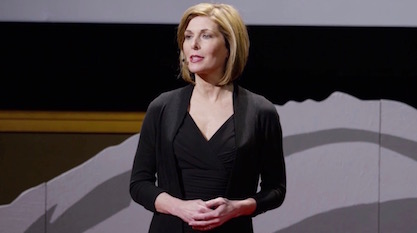 Free Speech
Free Speech
Wikipedia and “Astroturf”

We’ve commented before on what journalist Sharyl Attkisson calls “astroturf.” That is a technique for making it look like widespread, grassroots support exists for an idea, when in fact it doesn’t. It’s fake “grass,” hence astroturf. Paleontologist Günter Bechly’s deletion from Wikipedia, after he came out as a proponent of intelligent design, gives cause to revisit this helpful concept.
In a TED Talk, Attkisson says this about the online encyclopedia:
And then there’s Wikipedia — astroturf’s dream come true. Billed as the free encyclopedia that anyone can edit, the reality can’t be more different. Anonymous Wikipedia editors control and co-opt pages on behalf of special interests. They forbid and reverse edits that go against their agenda. They skew and delete information, in blatant violation of Wikipedia’s own established policies, with impunity — always superior to the poor schleps who actually believe anyone can edit Wikipedia, only to discover they’re barred from correcting even the simplest factual inaccuracies. Try adding a footnoted fact, or correcting a factual error on one of these monitored Wikipedia pages, then poof! Sometimes within a matter of seconds you’ll find your edit is reversed.
But on some subjects, the astroturf mob is particularly committed to a biased agenda.
Contrast Bechly’s treatment with novelist Philip Roth’s attempt (which Attkisson mentions) to correct the Wikipedia entry on the content of his own book, The Human Stain. Roth was afforded the opportunity to fix the record by writing an open letter in The New Yorker. His response was then incorporated into the Wiki entry, so readers can now decide for themselves. It all kind of worked out.
Bechly, on the other hand, was simply erased, and remains so. Editors claimed he wasn’t “notable” enough, but even Darwinists could see through that one. Of course, it was about his ID advocacy. To show his notability, Bechly told editors he had “dozens of more secondary sources from the print press, TV and radio” plus “three described new insect orders, more than 160 described species, and insect family Bechlyidae, a genus and 8 species named after me, 2 edited books and numerous book chapters, 1 book in German about me, and a ResearchGate score that is higher than 85% of ResearchGate members.” It was to no avail. The pseudonymous editors wouldn’t listen.
What can one do confronted with such unreasonability, and unfairness? For one, recognize that consulting other sources of information is crucial. Be a genuine skeptic. And for another, remind your friends and family that, certainly when it comes to controversial subjects like ID, Wikipedia is not to be relied upon.
